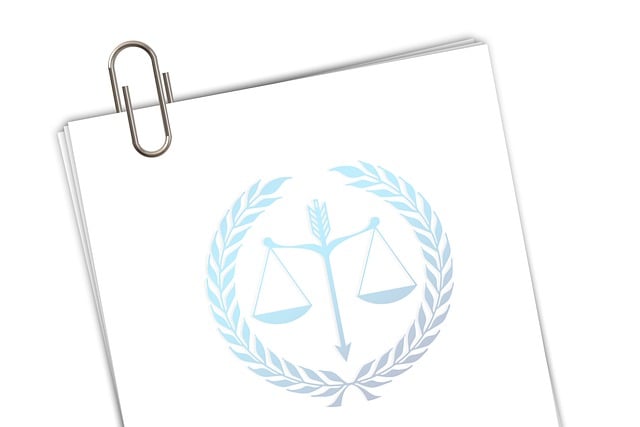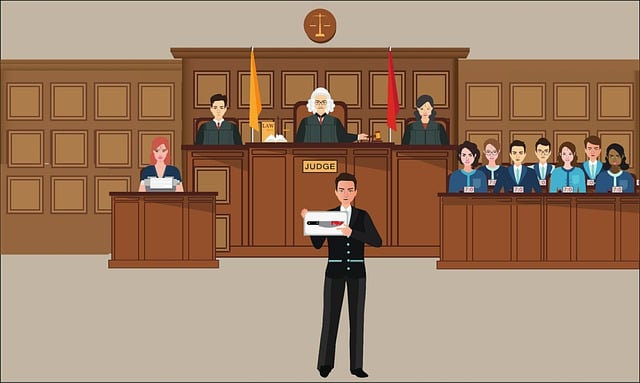Mail wire fraud is a growing threat in real estate, targeting buyers and sellers with manipulated transfers. To resolve disputes effectively, implement stringent measures like thorough verification of transfer instructions, using secure communication channels, and double-checking account numbers. Stay vigilant against red flags such as sudden urgency or requests for sensitive information over unsecured channels. Document all communications, report suspicious activities to law enforcement and regulatory bodies immediately, and consult a specialist in white collar defense for guidance on filing an official dispute. By combining education, robust security practices, and swift action, individuals can protect themselves from these scams and navigate real estate processes securely.
Mail wire fraud in real estate transactions is a growing concern, posing significant risks to buyers and sellers. This comprehensive guide delves into understanding the intricacies of mail wire fraud, recognizing common signals, and implementing robust protection measures. Learn effective strategies to safeguard your investment and navigate dispute resolution safely, especially when dealing with How to Resolve Real Estate Disputes. Additionally, explore legal recourse options and future prevention techniques to stay protected in today’s digital landscape.
- Understanding Mail Wire Fraud in Real Estate Transactions
- Common Signals of a Potential Mail Wire Fraud Scheme
- Protecting Yourself: Measures to Prevent Fraud
- Step-by-Step Guide to Resolving Disputes Safely
- Legal Recourse and Future Prevention Strategies
Understanding Mail Wire Fraud in Real Estate Transactions

Mail Wire Fraud has become a growing concern in real estate transactions, preying on unsuspecting buyers and sellers alike. This malicious practice involves manipulating wire transfer instructions to divert funds intended for property purchases or sales into fraudulent accounts. By exploiting the speed and convenience of digital payments, perpetrators can quickly launder money or acquire illicit assets. Understanding how this fraud operates is the first step in safeguarding your transactions.
When engaging in real estate deals, it’s crucial to implement stringent measures to prevent such scams. Always verify wire transfer instructions thoroughly, cross-referencing with all parties involved. For his clients, achieving extraordinary results means ensuring every detail is scrutinized, from double-checking account numbers to employing secure communication channels. An unprecedented track record of successful transactions can be a testament to the effectiveness of these precautions.
Common Signals of a Potential Mail Wire Fraud Scheme

Mail wire fraud schemes are increasingly common, targeting both individuals and businesses involved in real estate transactions. Recognizing potential signals is key to preventing such scams. One of the earliest indicators is sudden and urgent requests for wire transfers, often accompanied by threats or a sense of urgency to close a deal quickly. Scammers may also use generic or suspiciously perfect email templates, impersonating legal or financial professionals.
Another red flag is the demand for personal or sensitive information over unsecured channels. Legitimate real estate processes involve secure documentation and communication. If you encounter requests for wire transfers without proper authorization from your respective business or legal counsel, or if there’s a complete dismissal of all charges during an inspection, it’s crucial to pause and investigate further. Across the country, awareness and vigilance can significantly mitigate these risks in the ever-evolving landscape of real estate transactions.
Protecting Yourself: Measures to Prevent Fraud

Protecting yourself from mail wire fraud is paramount, especially in the intricate world of real estate transactions. To safeguard your investments, it’s crucial to implement preventive measures that go beyond basic security practices. Start by verifying every communication, cross-checking sender details, and never divulge personal or financial information unless absolutely necessary. Implement strong authentication processes for all accounts, using multi-factor authentication where available.
Stay informed about common fraud schemes and be wary of unexpected or urgent requests. Keep an eye on your financial statements regularly, reporting any unusual activity immediately. Building an unprecedented track record of vigilance can help protect you from potential losses. Remember, knowledge is a powerful tool; understanding the tactics employed by scammers enables you to navigate real estate disputes with confidence, ensuring a seamless and secure process.
Step-by-Step Guide to Resolving Disputes Safely

When faced with a mail wire fraud dispute, especially in real estate transactions, it’s crucial to act swiftly but safely. Here’s a step-by-step guide on how to navigate this complex scenario and achieve extraordinary results while ensuring your protection. Firstly, document everything – record all communications, keep copies of relevant documents, and note the dates and details of each interaction. This serves as solid evidence if the matter escalates. Next, inform the appropriate authorities; report the fraud to both local law enforcement and financial institutions immediately. They can provide guidance tailored to your situation, offering support in freezing accounts or tracking down fraudulent activities.
Following this initial phase, consult with a professional who specializes in white collar defense. Their expertise is invaluable in understanding the legal framework surrounding these crimes, including white collar and economic crimes. This specialist can guide you through the process of filing an official dispute, ensuring your rights are protected. It’s important to remain calm and follow their advice carefully. By taking these steps, you not only enhance your chances of resolving the dispute successfully but also safeguard yourself from potential financial losses and legal complications.
Legal Recourse and Future Prevention Strategies

Mail wire frauds, also known as real estate scams, can lead to significant financial losses for victims, making it crucial to understand legal recourse and prevention strategies. When dealing with such disputes, individuals should promptly report suspicious activities to relevant authorities, including local law enforcement and regulatory bodies like the Federal Trade Commission (FTC). This early intervention is key to preserving evidence and enhancing the chances of successful prosecution during all stages of the investigative and enforcement process.
To safeguard against future mail wire frauds, businesses and individuals alike must remain vigilant and educate themselves about common schemes. Regularly reviewing and updating security protocols, such as employing robust data encryption for online transactions and implementing multi-factor authentication, can significantly reduce risks. Additionally, staying informed about industry regulations and best practices ensures that any unusual activities or discrepancies are promptly addressed, thereby avoiding indictment and potential legal repercussions.
Mail wire fraud in real estate transactions is a growing concern, but understanding common signals and implementing robust protective measures can significantly reduce the risk. By staying vigilant and adopting preventive strategies, such as verifying every detail with agents and using secure communication channels, individuals can safeguard their investments. In case of dispute, following a structured approach outlined in this article—from recognizing signs to legal recourse—is crucial for How to Resolve Real Estate Disputes effectively. Continuously staying informed about prevention strategies ensures a safer navigating landscape in the real estate market.






